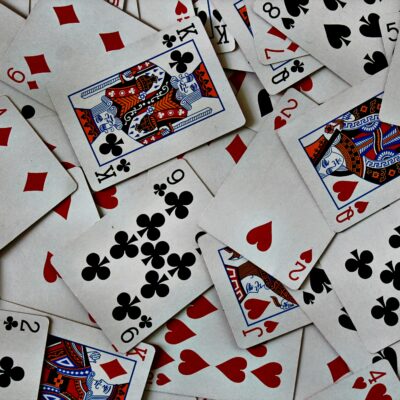Druids are powerful spellcasters and shapechangers in Dungeons & Dragons, but not all of their subclasses are equally effective.
Druid mythology has a long history in the sword-and-sorcery genre, but the Druid class is relatively new to the world of tabletop gaming. Druids are one of the most popular classes in Dungeons & Dragons, and their subclasses provide a lot of variety in roleplaying and combat. Druids have their own secret language, certain spellcasting talents, and can serve a variety of roles in the party.
The Druid subclass is known as a Circle in D&D lore, and it is the equivalent of a Warlock’s Pact or a Cleric Domain. The way you play can change drastically depending on whatever Circle your Druid enters. Here are the top five, ranked from worst to best in terms of how useful they may be in assisting the party in a variety of campaigns.
Circle Of Spores

The Circle of Spores Druids see beauty in death and decay, which are an unavoidable aspect of nature’s cycle. They see the potential for an abundance of resources in moulds and fungi. The spore subclass differs from most druids in flavour and feel, because instead of restoring life, you can animate a corpse. Using a Wild Shape charge can fuel Symbiotic Entity rather than transform you into a monster.
Fungal Infestation and Spreading Spores are both intriguing skills that contribute to druids departing from their typical responsibilities in a team. There’s nothing wrong with it, but make sure your allies understand that you won’t be casting healing spells or tanking hits as a bear in combat. At the very least, people may rest easy knowing that their carcass will still be useful after they die.
Circle Of Dreams

Druids in the Circle of Dreams strive to infuse the world with dreamy delight. There is nothing fundamentally wrong with choosing the Dream subclass. Other subclasses, on the other hand, are more adaptable and give players additional options in a variety of situations.
Balm of the Summer Court, earned at level two, is an adequate healing ability, although it lacks effectiveness when compared to a Shepherd subtype. Hearth of Moonlight and Shadow offers you tranquil rest under unnoticeable cover, while Hidden Paths allows for some imaginative avoidance of potentially harmful situations. This subclass also has a lot of roleplaying potential.
Circle Of The Moon

Druids of the Circle of the Moon are fierce wilderness defenders. Their order gathers beneath the full moon to discuss natural disasters. Those who wish to transform into beasts are welcome here. This makes the Druid a formidable frontliner, with the potential for a large number of hit points early on, and at level ten, this gets even more potent with Elemental Wild Shape, granting the ability to morph into an Air, Earth, Fire, or Water elemental.
Moon is an intriguing subclass choice because it can provide the simplest or most complex gameplay. A strategic Moon druid will make it their mission to view as many creatures as possible in order to maximise their Wild Shape potential and be able to adapt to any situation, especially at higher levels when the shape-shifting constraints are lessened.
Circle Of The Land

The Circle of the Land is made up of mystics and sages who endeavour to preserve old knowledge and practises through an extensive oral heritage. The story-telling Druid has the potential to be the most interesting party member, unless they have an atrocious charisma modifier and spoil all their stories with monotonous speaking or rambling, which is fun in a different way.
In practise, those who follow the Circle of the Land are effective spellcasters. There is a wide range of flavour depending on the terrain, and there is a lot to cast without having to prepare a formal spell: a bonus cantrip at level two, Natural Recovery for spell slots on short rests, and, of course, a variety of circle spells based on different land-based ecosystems, such as arctic, coast, desert, forest, grassland, and others.
The Circle Of Stars

The Circle of Stars Druid subclass prioritises damage over healing, yet it still has plenty to offer a Druid who still wishes to be the party’s healer. This subclass has several distinct abilities, the most notable of which is Starry Form, which grants you access to casting skills, healing spells, and attack mode while in combat.
Druids from the Circle of the Stars can additionally enhance their fighting abilities with a variety of Constellations, which work as bonuses for specific talents in combat. These are most likely the most adaptable druids, tailoring their activities to the situation at hand. If you’re playing as one, deciding what to do on your turn is a true challenge.
The Circle Of Wildfire

You may anticipate a summoned pet from a Warlock or a Sorcerer, but it’s about time a Druid acquired a pet that wasn’t like the Ranger’s tamed pets. Your Wildfire Spirit’s powers primarily focus on hurting enemies, but you can sacrifice it to restore hit points to yourself.
One disadvantage of this Slope Game Circle is that it mainly relies on fire damage, and fire resistance is a common occurrence in the D&D universe. But don’t worry, your Circle of Wildfire spells also include healing and defensive benefits, and you can select specific Feats to further broaden your attacking options.
The Circle Of The Shepherd

While Druids care for all living beings in the natural world, Shepherd Druids are especially concerned with animals and fey creatures who are unable to protect themselves. One of the most powerful talents of a Shepherd Druid is the ability to summon natural spirits to change the environment around you. Other advantages to choosing the Shepherd subclass exist, but these auras are so valuable in almost every situation that they tend to overwhelm the rest of the subclass.
A Druid can summon an incorporeal spirit within 60 feet by using a bonus action. The three options provide your party with a number of advantages. Bear Spirit bestows might and endurance on you and your allies, Hawk Spirit bestows keen sight on your party, and Unicorn Spirit bestows protection on those close as well as an advantage on all ability checks performed to detect creatures in the spirit’s aura. A true Swiss army knife subtype.




